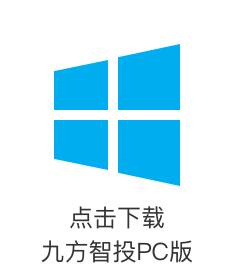Investment positives
We initiate coverage of Sinocat Environmental Technology Co. Ltd. (Sinocat) with an OUTPERFORM rating and a target price of Rmb55 offering 23.4% upside.
Why an OUTPERFORM rating?
Focus on exhaust treatment catalyst industry; notable product and technology advantages. Through cooperation with Sichuan University, Sinocat has expanded its presence beyond motorcycle exhaust treatment catalysts to gasoline, diesel, and natural gas- engine exhaust treatment catalysts. The firm has developed exhaust treatment catalysts that meet the China III, IV, V, and VI emission standards, with its products gaining recognition from customers in China and overseas. Sinocat is a frontrunner in the natural gas- engine exhaust treatment catalyst industry. According to corporate filings, the firm accounted for 48.55% of the market for catalysts for treatment of exhausts from natural gas-powered heavy-duty trucks (HDTs) in 2020 (vs. 30.55% in 2019 and 8.33% in 2017). It has rapidly gained market share thanks to its products, technology and strong client base, in our opinion.
After-treatment catalyst market will likely reach Rmb80bn in 2022 due to implementation of China VI emissions standard; upbeat on domestic production. The value of catalysts per vehicle has increased significantly thanks to the implementation of the China VI emission standard for on-road diesel vehicles and the China IV emission standard for non-road diesel vehicles. Under our conservative, neutral, and optimistic assumptions, we estimate the domestic after-treatment catalyst market will reach Rmb65.5bn, Rmb81.7bn, and Rmb97.9bn in 2022. While the domestic market is currently dominated by overseas companies, we think Chinese companies can reshape the competitive landscape of the industry. In our opinion, Sinocat will likely grab market share from overseas companies by leveraging its cost and service advantages. The firm may also seize market share from domestic companies, thanks to its environmentally friendly catalyst-related formula and process technologies. It will likely improve its profitability by creating synergies between technologies and increasing product categories, in our view.
Hydrogen fuel cell business may become long-term growth engine. The use of hydrogen fuel cell technologies may notably increase thanks to the promulgation of supportive policies for hydrogen power in China and overseas during the past two years.Sinocat is developing three hydrogen fuel cell related business segments ─ catalysts for hydrogen fuel cells, membrane electrodes, and solid oxide fuel cells (SOFCs) and solid oxide electrolysis cells (SOECs). The firm was the first domestic catalyst manufacturer to join the Hydrogen Council. It now offers small batches of catalysts for hydrogen fuel cells to SinoHytec, Refire, and other leading hydrogen fuel cell companies. Sinocat will likely become one of the first domestic companies to mass-produce catalysts for fuel cells, and we believe the hydrogen fuel cell business may become a long-term growth engine for the firm.
How do we differ from the market? We are upbeat on the growth potential of Sinocat, as the firm focuses on the catalyst industry and may create synergies between underlying technologies. Its initiatives to develop catalysts for hydrogen fuel cells are also moving faster than those of domestic companies.
Potential catalysts: Sinocat's earnings fell rapidly in 2021 due to the low sales volume of natural gas powered HDTs. We think the implementation of the China VI emission standards for on-road diesel vehicles (in mid- 2021) and the updated China IV emission standards for non-road diesel vehicles (effective in December 2022) will boost the firm's earnings growth. This, coupled with its ample orders on hand, prompts us to believe the firm's revenue and profit may increase notably in 2022.
Financials and valuation
We estimate the firm's EPS at Rmb0.11 for 2021, Rmb1.81 for 2022, and Rmb2.48 for 2023. Using the SOTP valuation methodology, we derive a valuation of 18.0x 2023e P/E for the after-treatment catalyst business and 10.0x 2025e P/S for the hydrogen fuel cell business. Factoring in discounted cash flow for valuation of the hydrogen fuel cell business’s revenue, we assign a target price of Rmb55, offering 23.4% upside. We initiate coverage with an OUTPERFORM rating.
Risks
High and volatile precious metal prices; excessive reliance on a handful of clients; fluctuating production and sales volume of commercial vehicles; operating cash flow falling short of net profit; disappointing hydrogen energy business.













